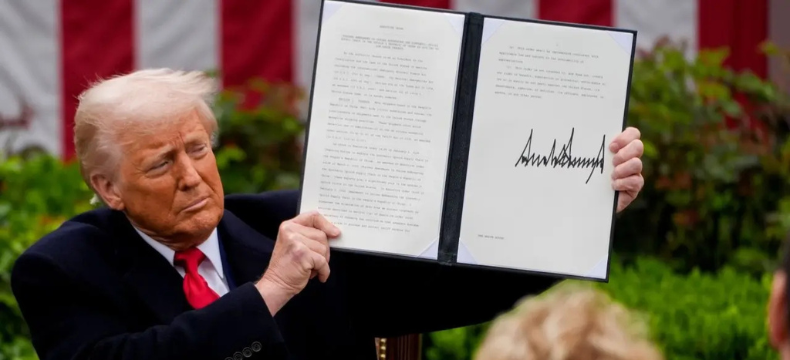A US 20% reciprocal tariff on the European Union will hurt. It's worsened the eurozone's short-term outlook. Now, so much depends on European governments to push through with their planned fiscal stimulus and reforms to strengthen domestic economies.

Wednesday's tariff announcements by Donald Trump should be the final reminder for Europe that the Transatlantic relationship has changed for good. And this doesn’t only apply to security and defence policies.
Since the US elections in November, it's been clear that the intended US economic policies were a kind of modern version of beggar-thy-neighbor policies, strengthening the US economy and cannibalising important trading partners. While the intended energy policies and tax cuts have not yet been implemented, today’s tariff announcements combined with earlier tariffs on steel, aluminum and automotives will hurt the eurozone economy.
Even if there are no winners in trade wars, some lose more than others. While in recent weeks, the longer-term outlook for Europe had clearly brightened with the European defence initiatives and the German fiscal U-turn, tariffs have just darkened the near-term outlook.
Would you like to know more about prominent global economic happenings? Find out more in our monthly bundle with economic topics on ING THINK.